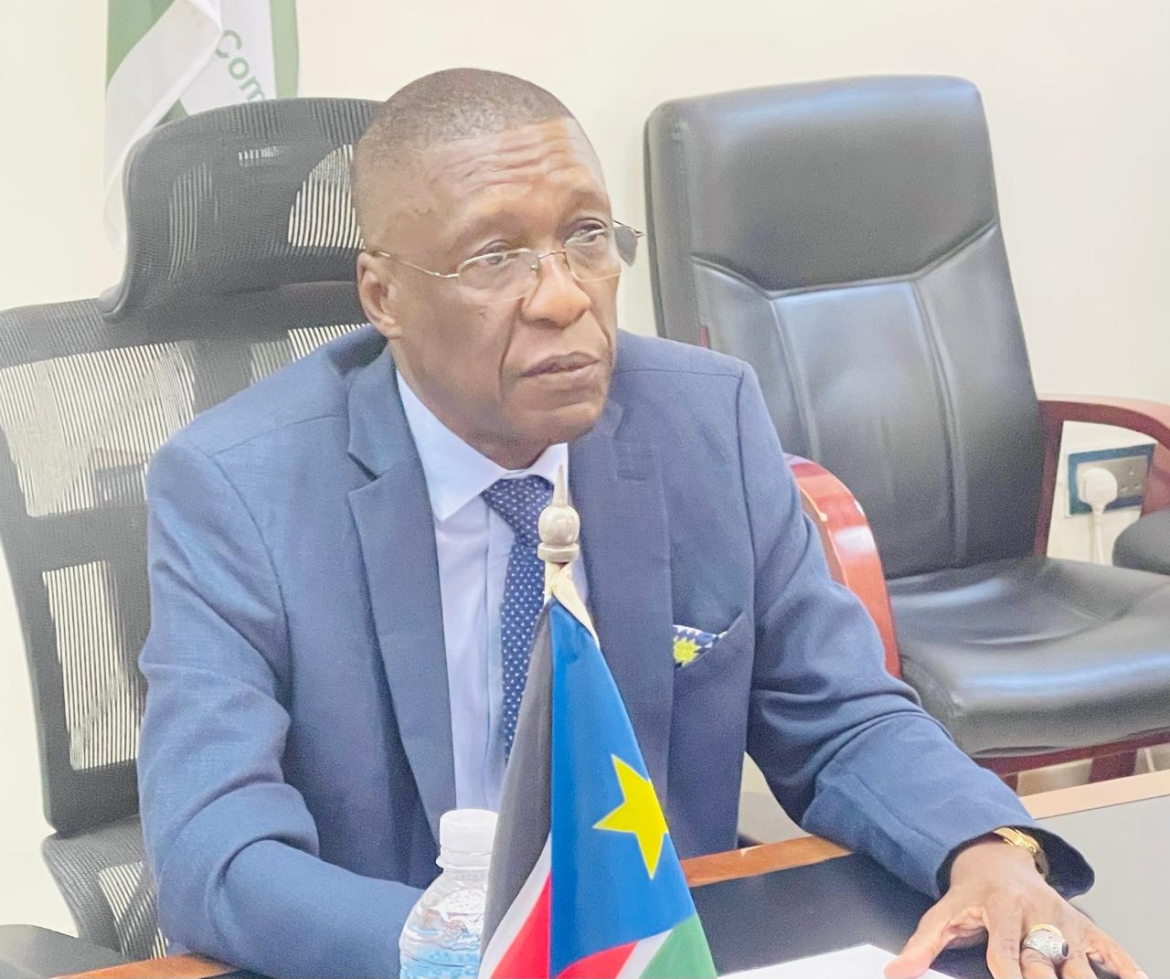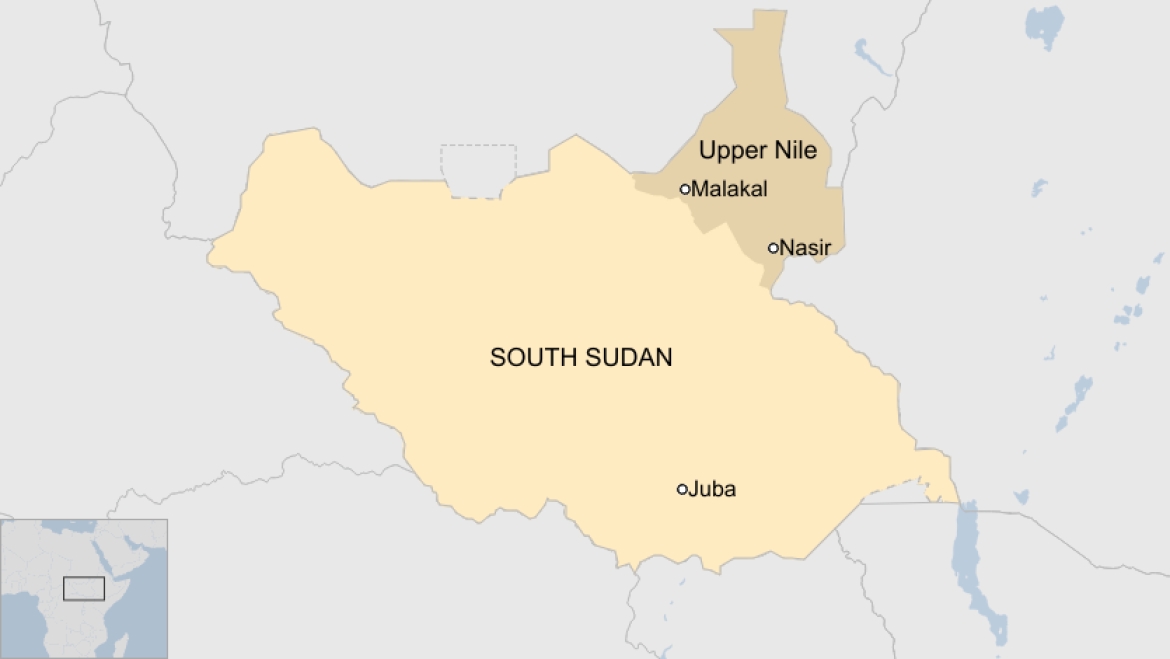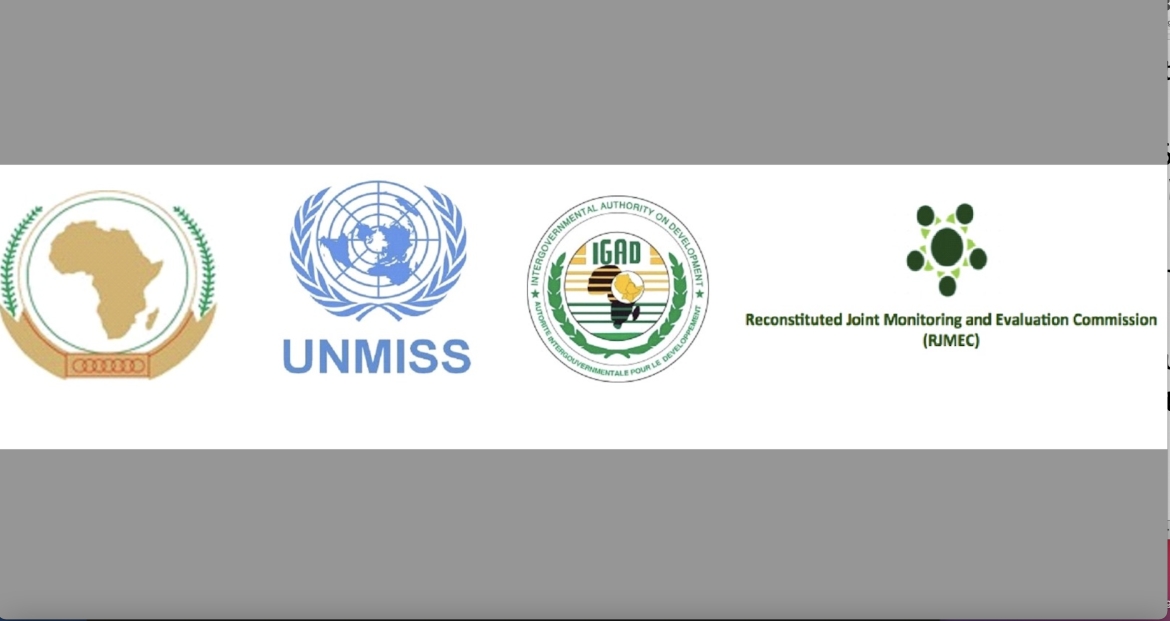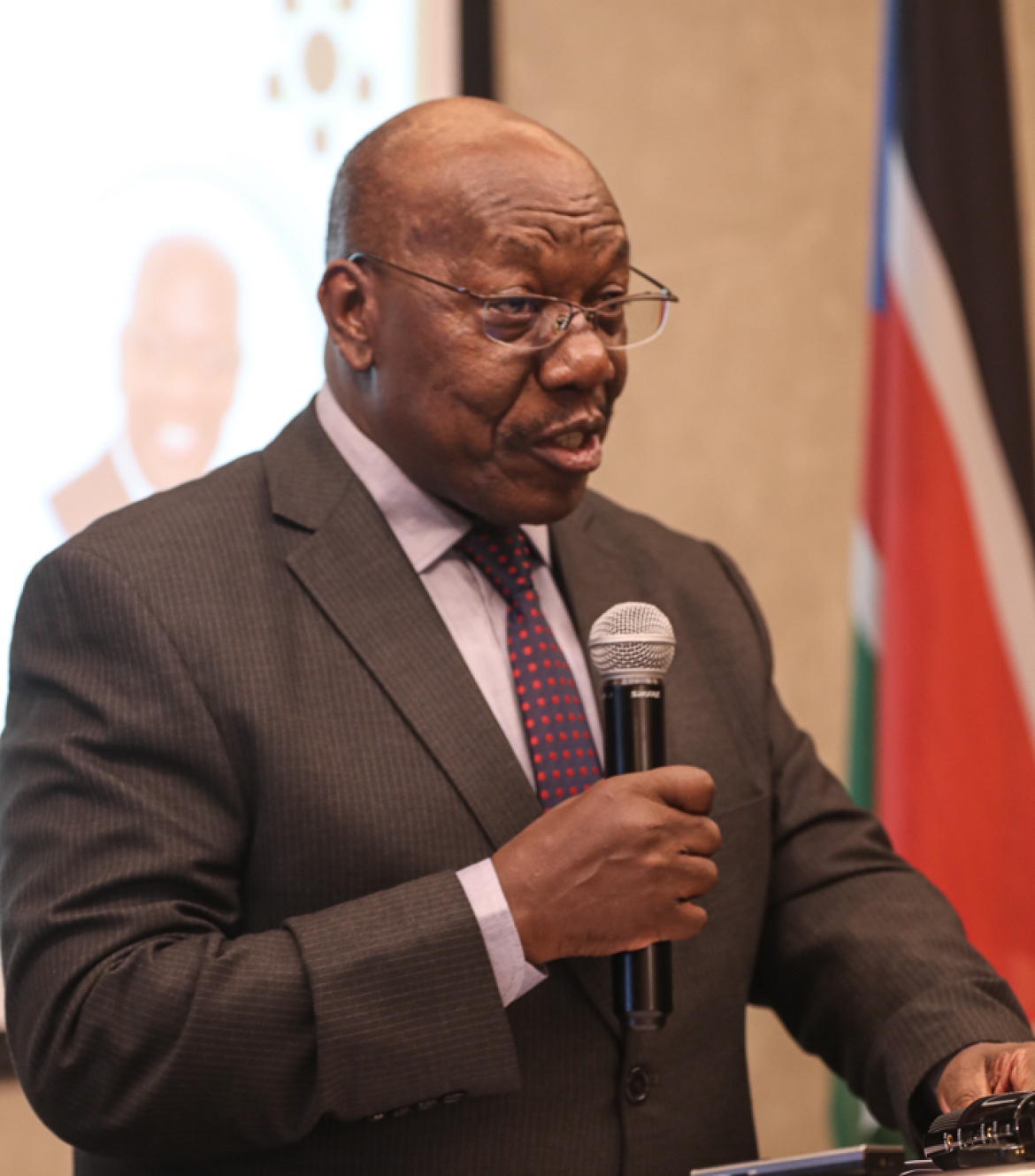Women urged to unite and push for representation
September 19,2018The Joint Monitoring and Evaluation (JMEC) has called on the South Sudan media to be part of the solution in the country’s quest for durable peace.
Speaking during a workshop that targeted members of South Sudan media, JMEC Chief of Staff, Ambassador Berhanu Kebede said,
The Joint Monitoring and Evaluation Commission (JMEC) has lauded the latest signing of the outstanding issues on Governance between Parties, terming it as a ray of hope for the people of South Sudan.
The Chairperson of the Joint Monitoring and Evaluation Commission (JMEC), H.E. Festus Mogae has on Wednesday held discussions with envoys in South Sudan.
H.E. Mogae briefed the Juba-based envoys from IGAD, African Union, Troika (the UK, US and Norway), UNMISS and the European Union (EU) on the ongoing revitalization process in Khartoum and what is stake going forward.
The briefing also included progress made by the National Constitutional Amendment Committee (NCAC) towards the amendment of South Sudan constitution.
The chairperson had a separate meeting with the Special Representative of the Secretary-General (SRSG) for South Sudan David Shearerand his deputy Moustapha Soumaré.
The Joint Monitoring and Evaluation Commission (JMEC) has expressed outrage and condemns the attack on humanitarian workers and the destruction of facilities and equipment at the Maban camp, in Northern Upper Nile.
In a Press statement issued on Wednesday JMEC said,
“Attacks on aid workers who diligently offer their services to alleviate the suffering of people of South Sudan, are deeply regrettable and indeed a violation of the Agreement on the Cessation of Hostilities, Protection of Civilians and Humanitarian Access signed in December 2017.”
“Unfortunately, this is one of the many other attacks that targeted aid workers in the country in the recent past, including killings of personnel.
JMEC calls on the authorities to carry out an independent investigation into the attack and to hold those responsible to account,” it added.
The Joint Monitoring and Evaluation Commission (JMEC) wants a “high level consultative mechanism” formed to periodically review the implementation of the Peace Agreement and take “time and decisive” actions against spoilers and violators.
Representatives of Civil Society have presented their amendment proposals to the National Constitutional Amendment Committee (NCAC) on South Sudan’s National Elections Act, 2012.
The proposals were developed following a stakeholder’s workshop on the Political Parties Act, 2012 and the National Elections Act, 2012.
The Joint Monitoring and Evaluation has on Thursday called on the South Sudanese warring parties to embrace the spirit of compromise at the revitalization forum and end the “senseless killings” in the country.
“The achievement of peace in South Sudan is a collective process. You must all make the decision that the conflict, and especially the senseless killings need to stop and say enough is enough,” JMEC Deputy Chairperson Ambassador Lt. Gen. Augostino Njoroge said.
“It is critical for allparties to fully abide by the Agreements they have signed to date, including the Agreement on the Cessation of Hostilities, Protection of Civilians and Humanitarian Access of December 2017 (ACoH) and particularly refrain from all acts of violence,” he added.
Speaking in Juba on Thursday during the closing ceremony of a four-day workshop, Ambassador Njoroge said even though steps that have been taken towards the Peace Agreement revitalization process is “encouraging”, the Parties should endeavor to resolve outstanding issues.
“So much ground has been covered since the Revitalization process begun. This is indeed encouraging. JMEC continues to urge the Parties in the conflict to embrace the spirit of compromise and to resolve all the outstanding issues,” he said.
The workshop themed “Peace in Time: Creating awareness for the Youth on the South Sudan Peace Process” brought together 200 students from the Youth Peacemaker Network at the Juba-based Whitaker Peace & Development Initiative (WPDI).
The workshop provided training on the 2015 Agreement on the Resolution of the Conflict in South Sudan, the 2017 Cessation of Hostilities (ACoH) and the High-Level Revitalization Forum (HLRF).
Ambassador Njoroge said the youth of South Sudan, “should be the social capital, the vanguard and a force for good.”
“The youth in this country must rally around a common goal, set better standards, educate the population on their rights and responsibilities and continue to agitate for a peaceful resolution of the conflict that has continued for far too long,” he said.
“Remember however that, all wars must end in peace. Let all of you as South Sudanese find in your hearts a place to forgive each other, accommodate one another and rekindle the spirit of brotherhood and sisterhood and take another historic step to rebuild your motherland. As the youth, the future belongs to you more than any other social group.”
The continuous killings of civilians, sexual violence against women, the displacement of children, the elderly and disabled persons in South Sudan are “deeply disheartening”, the Joint Monitoring and Evaluation Commission (JMEC) has said.
The National Constitution Amendment Committee (NCAC) on Thursday 21st June 2018, held a one-day stakeholders meeting on the review/amendment of election-related laws at Royal Palace Hotel, Juba. The meeting was officially opened by the Speaker of the Transitional National Legislative Assembly (TNLA), Rt. Honorable Anthony Lino Makana.
The stakeholders meeting was attended by more than sixty (60) participants representatives of the National Elections Commission, Political Parties Council, the National Constitutional Review Commission, Members of all registered Political Parties, media, representatives of civil Society, youth and women organisations. Ambassador Mahen Kundasamy, JMEC Deputy Chief of Staff officially made opening and closing remarks at the meeting on behalf of the Chairperson of JMEC, H.E Festus Mogae.
The objective of the meeting was to validate proposed amendments to the Political Parties Act, 2012 and the National Elections Act, 2012 as well as obtain input / views and recommendations to support the amendment process. The deliberations at the meeting were comprehensive and will be critical in the further review and amendment of the two election – related laws. Participants greatly appreciated the stakeholders forum and provided extensive feedback that will be duly considered and incorporated by the Committee. The meeting was very successful in achieving the aforementioned objectives. The Committee will now consider and incorporate the views from the meeting and finalise the proposals in the form of amendment bills which will be then presented to the Minister for Justice and Constitutional Affairs.
The National Constitution Amendment Committee on Monday met the Minister for Cabinet Affairs - Dr. Martin Elia Lomuro. The Minister was accompanied by his colleague, the Minister for Justice and Constitutional Affairs - Hon. Paulino Wanawila. The purpose of the meeting was to brief the Minister of NCAC’s commencement of work towards the drafting of legislation for the establishment of the Economic and Financial Management Authority (EFMA) to provide oversight over the economic and financial sector in accordance with the peace agreement (ARCSS).
The Peace Agreement mandates the NCAC to draft legislation for the establishment of the EFMA in accordance with Chapter IV Article 8. Article 8.2 provides that the EFMA shall be governed by a board to be known as Board of Economic and Financial Management Authority (BEFMA) comprising the President and the First Vice President of the TGoNU as Chair and Deputy Chair respectively, and Ministers of Finance and Planning, Petroleum, Mining, Roads and Bridges, Governor of the Bank of South Sudan (BoSS), National Revenue Authority, Chair of the Parliamentary Committee dealing with Public Accounts; representatives of Political Parties, South Sudan Chamber of Commerce, Industry and Agriculture (SSCCIA), Civil society, Women’s bloc, Youth and Academia; Article 8.3provides that BEFMA shall appoint the Head of the Authority that shall be endorsed by the Transitional National Assembly (TNA). Article further 8.4 provides that EFMA shall be supported by an Advisory Committee comprised of: the World Bank, International Monetary Fund, African Development Bank, Common Market for Eastern and Southern Africa (COMESA), PTA Bank, UN-Economic Commission for Africa, United Nations Development Program, and three (3) major donor representatives.
During the meeting, the NCAC briefed the Minister on the initial consultations the Committee has made and of its intention to adopt a participatory process involving consultations with government institutions, experts and stakeholders. The ministers reiterated their commitment and support for NCAC’s work.
The Joint Monitoring and Evaluation Commission (JMEC) has on Wednesday held its 6thDonor Conference in the South Sudan capital, Juba.





